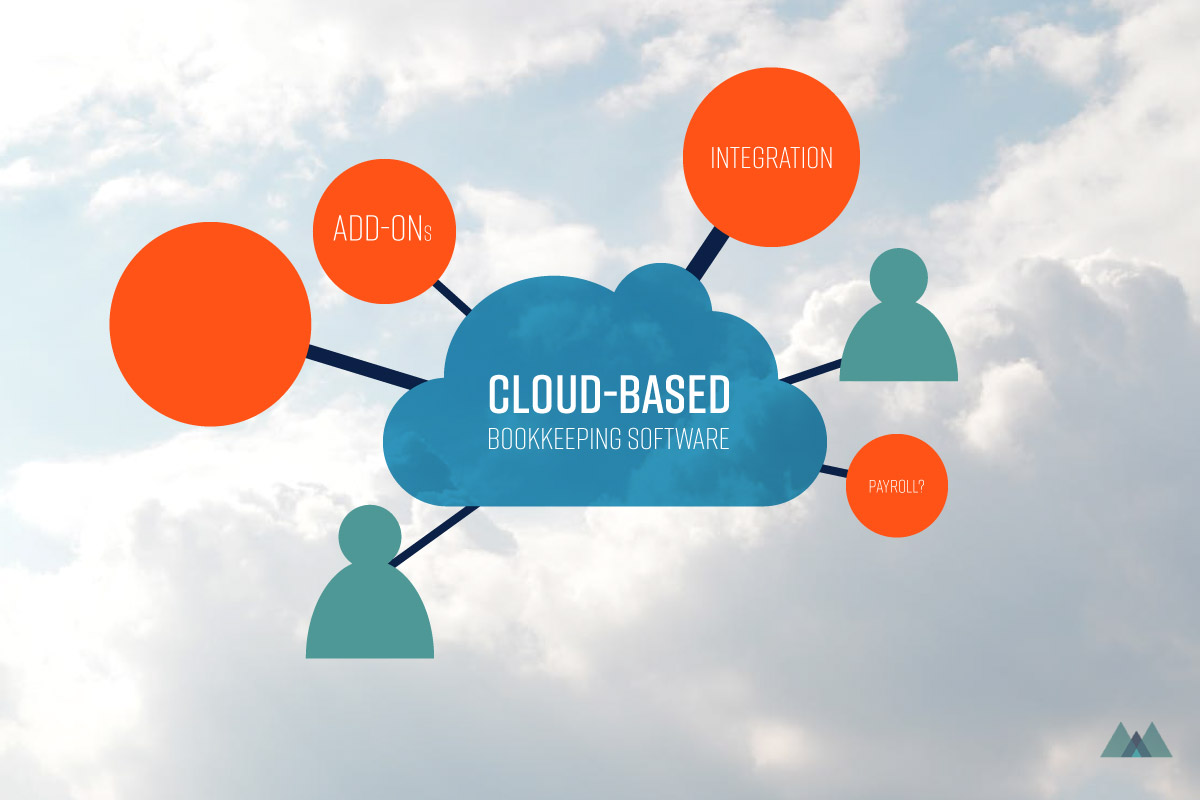
Cloud bookkeeping software's advantages
- Lower upfront cost: The average cost of cloud bookkeeping software is between $13 - $40 per month. Payroll functionality usually costs an additional $20/month plus $2 - 4 per employee and is either built-in or available through an integrated third-party application.
- Scalability: The subscription-based, tiered pricing offered by cloud bookkeeping applications allow you to add features and upgrade as your business grows. (This is often not possible with off-the-shelf desktop software.)
- Built-in collaboration tools: You can invite your bookkeeper or accountant to access your books remotely. He or she can review transactions, make corrections, and prepare reports.
- Easier data entry: Features like connecting online bank and credit card feeds mean that transactions are automatically imported to the system, which reduces tedious data entry, while increasing accuracy.
More features for cloud bookkeeping
More integrations and add-on applications are now available, they increase functionality and provide additional features to cloud bookkeeping. These applications expand the flexibility of bookkeeping software, allowing businesses to use the same software as they grow.
- Credit card payment: When users email an invoice, several software products offer a credit card payment option. When the transaction clears, the funds are deposited to the user’s bank account, the invoice is marked as paid, and the transaction is automatically and easily entered to the user’s records.
- Using a card reader: If your business accepts credit and debit card payments using a card reader (e.g. Square or Dream Payments) you may also want to use the associated application in order to automatically import transactions.
- Payroll: Some cloud accounting software has built-in payroll functionality and others integrate with a third-party payroll application to provide this option.
Double check payroll features
Be cautious with payroll features. Even if the software you use has built-in payroll, you may want to use a third-party payroll application for a few reasons:
- Storing sensitive employee and payroll information such as social insurance numbers and salary data means that you will have to be vigilant with user access and security. Depending on the software, you may not be able to exclude access to the payroll section for specific users.
- The payroll options may not be as flexible and varied as a payroll-specific application. For example, certain types of taxable benefits may not be captured and reported correctly.
- Many third-party payroll applications will offer additional functions, such as year-end reporting, record of employment (ROE) submission, and automatic source deduction remittances.
*Most applications are subscription-based or pay-per-use so it’s important to check it out beforehand, read user reviews, and select applications that will add the most value and streamline current operations.
Created by Novus Accounting & MoneySherpa

Time's up
